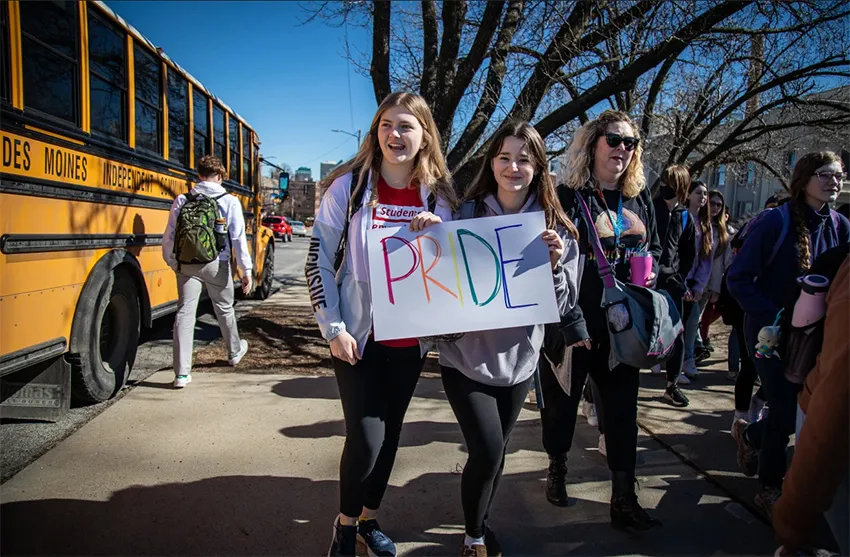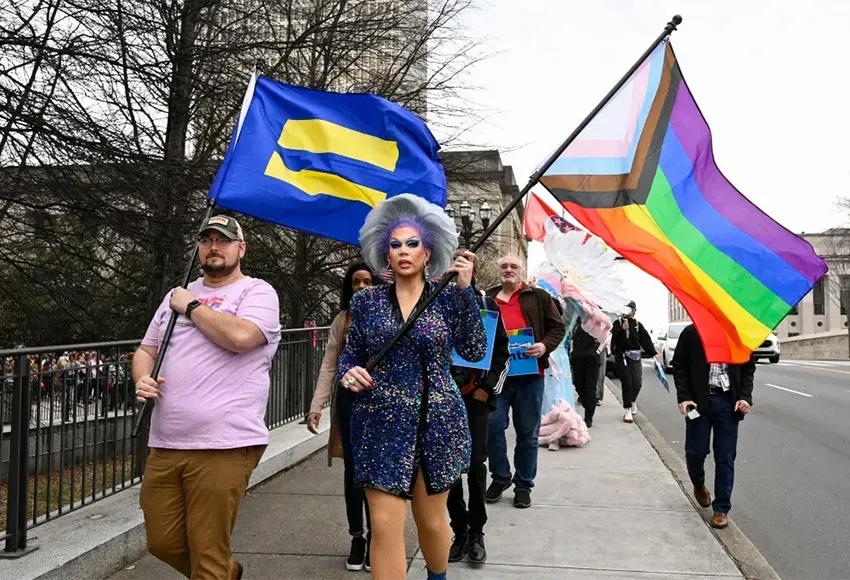2023 brings onslaught of 75 anti-Queer laws across the US
In 2023, 75 anti-Queer bills have become law across 23 states, including restrictions on gender-affirming care, school sports, school instruction, drag, and more.
The plurality of those laws are restrictions on transition-related care for minors, while 11 of them bar Transgender student-athletes from playing on school sports teams that align with their gender identities.
Ten of the laws limit classroom instruction on Queer issues and/or the use of pronouns in school that don't align with a person's birth sex, and eight restrict which restrooms Trans people can use in schools or other publicly owned buildings.
The remaining laws restrict drag performances in front of minors, define a person's sex in state law as that which was assigned at birth, and create additional barriers for Trans people to change the sex on their birth certificates, among other measures.
Though 2023 was a record year for legislation targeting Queer people, some advocates and experts say that those who support Queer rights are still coming out ahead, since just about 15% of the approximately 500 bills proposed have become law.
So far, judges have issued temporary blocks, either partial or full, against gender-affirming care restrictions passed this year in Florida, Georgia, Montana, and Indiana. Others have upheld restrictions on gender-affirming care passed this year in Kentucky, Tennessee, Oklahoma, Missouri, and Texas.
The plaintiffs in the Tennessee case appealed to the Supreme Court last month. If the court decides to take the case, it would be the first time it has considered a restriction on puberty blockers, hormone therapy, and surgery for minors.
Educational institutions – from public elementary schools to private colleges that receive state funding – have become ground zero for the conservative-led effort to limit Queer rights and access to related information. State bills signed into law this year have affected classroom instruction, extracurricular participation, and access to sex-segregated school facilities, among other things.
Eleven states now have laws affecting what teachers can say about Queer issues and how they can show up at work, with all but one of these measures having been passed this year.
Currently, 23 states have laws on the books restricting which school sports teams Transgender athletes can join, with about half of those having been passed this year.
Lawmakers in at least 16 states introduced restrictions targeting drag in 2023, according to an NBC News analysis. Just six became law, and so far, they have been the least likely to hold up to judicial scrutiny.
Judges struck down two laws, in Tennessee and Texas, and temporarily blocked restrictions in Florida and Montana that specifically regulate events at public libraries in which drag performers read to children.
Gabriele Magni, an assistant professor of political science at Loyola Marymount University in Los Angeles and director of the school's Queer Politics Research Initiative, said the country likely hasn't seen the end of legislation targeting Queer people, because we're heading into an election year.
Early tracking of next year's bills shows that Magni could be right. Gillian Branstetter, a communications strategist for the ACLU, said that the nonprofit is tracking 212 bills targeting Queer people that have either been prefiled for the 2024 session or carried over from the 2023 session.
"This became a sort of vicious cycle in which no one wanted to be left behind," Magni said. "They don't want to be seen as less conservative or less active on these, and so in some cases in some states, we see the introduction of bills just more to not fall behind in these conservative ranking credentials rather than hoping that it will become legislation."

The historic amount of legislation has also led to an equally historic level of protest on either side. Students have coordinated nationwide walkouts, and protesters have packed state legislatures, while human rights groups have documented more than 300 anti-Queer incidents in just the last year, including bomb threats against hospitals that provide transition-related care to minors and armed protesters outside of drag shows.
Phillip Hightower, whose Trans son Max was removed and then reinstated in his school's production of Oklahoma!, said to NBC News that he and his family won their fight for Max because more parents spoke out once they realized they had support, both within their mostly conservative community and across the country.
"Once it started to gain traction nationally, they felt safer," he said.
Quoting 2019's Star Wars: The Rise of Skywalker, Hightower said, "We've got friends out there. They'll come if they know there's hope."


